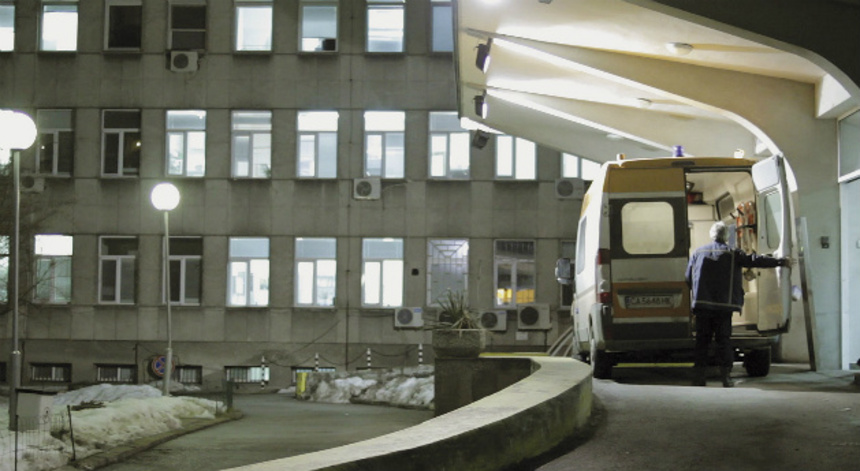Black Movie 2013 Review: SOFIA'S LAST AMBULANCE Offers a Riveting, Humanistic Look at a Systemic Nightmare

It's hard to imagine a more stressful, sanity-testing job than that of an ambulance medic. Not only do they spend all of their working hours in a constant state of emergency, surrounded by illness, death and sometimes extremely ornery patients, but they also have to deal with traffic and directions! After seeing the excellent Sofia's Last Ambulance though, I've discovered a job that's even more trying - doing all of that in Bulgaria's capital city.
This city of around two million people only has 13 ambulances in service. Yes, that means the film's title is a bit of a misnomer, but still, point taken. Filmed over two years, the documentary -- which at times feels as fluid as a fictional narrative -- chronicles the lives of a crew in one of these ambulances, including the city's only resuscitator.
It's shot mostly fly-on-the-wall style, or in this case, camera-on-the-dashboard. Rather than following the ambulance drivers around constantly with a handheld-camera crew (though there is some of that), director Ilian Metev develops the characters and much of the narrative via footage from small cameras mounted at the front of the ambulance which are focused on the team's faces. The camera almost never shifts down to show us the patients they deal with, but the reactions of the ambulance team tell us all we need to know.
What emerges is both a humanistic portrait of underpaid, overworked people trying to make a difference within a broken system and a riveting, occasionally blackly comic chronicle of just how broken that system is. Some of the situations in this film probably would have showed up in a Kafka novel if he had lived long enough to write about ambulances.
At one point they follow hazy directions to the middle of nowhere, only to find out that the person they were supposed to rescue has been dead for two days. Rather than go in the house, the cops had called them based on somebody else's report that the person was alive, hoping that the ambulance would handle the situation so they didn't have to. Throughout the movie, their radio cuts in and out, sometimes going off for long stretches, sometimes distorting the dispatcher's voice beyond recognition. All the while they cruise over pothole-laden roads, which become especially noticeable when a man with a very broken leg is bumped up and down for a prolonged ride.
At the center of the film are the three members of the ambulance team, and the dashboard cameras allow for an intimate look at their day-to-day lives. In between emergencies, we experience their small talk about money problems and regrets, cigarette breaks, and sometimes moments where they simply sit, waiting for the radio to start working again. Because it was filmed over two years and the cameras were always mounted in front of them, their interactions feel more genuine, and never self-conscious. It also helps that all three have amazing, incredibly expressive faces. The Doctor, Krassimir, rarely speaks about his frustrations with the job or about the reason he keeps doing it, but his eyes and his face communicate more frustration and compassion than words possibly could anyway.
At only 71 minutes, the film is brisk, well-paced and absorbing. Some may be frustrated by the lack of context and clear explanation that results from the observational style, but after two days of reflection, I'd argue that what lurks beneath the surface and between the lines of the film makes it more powerful and haunting than it would have been otherwise.







